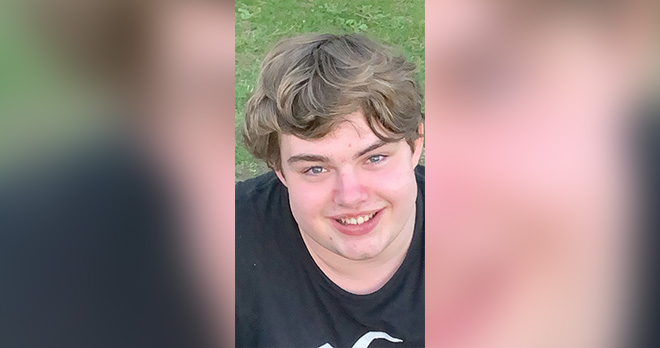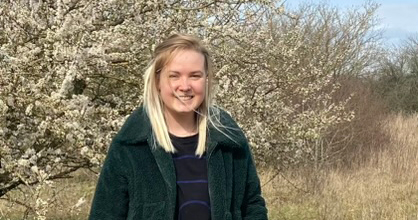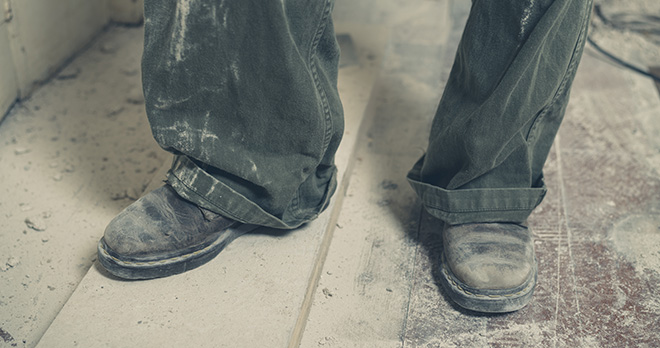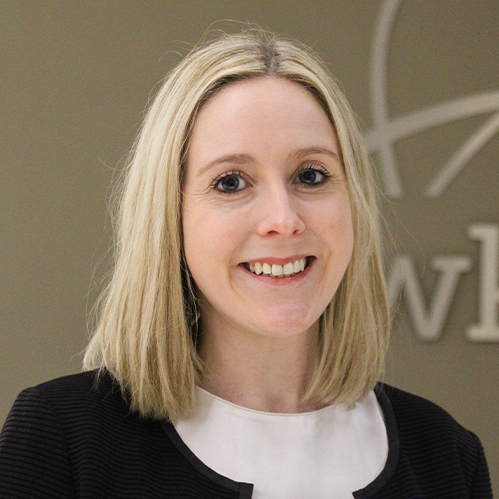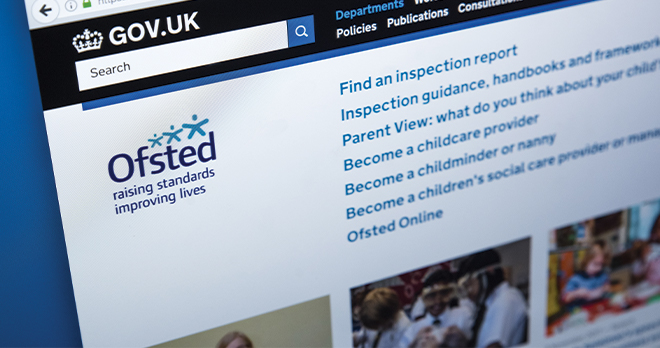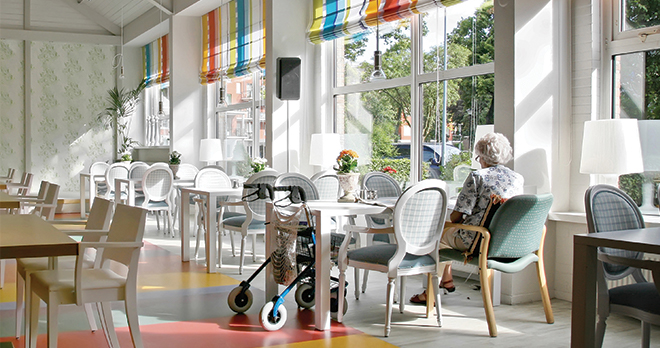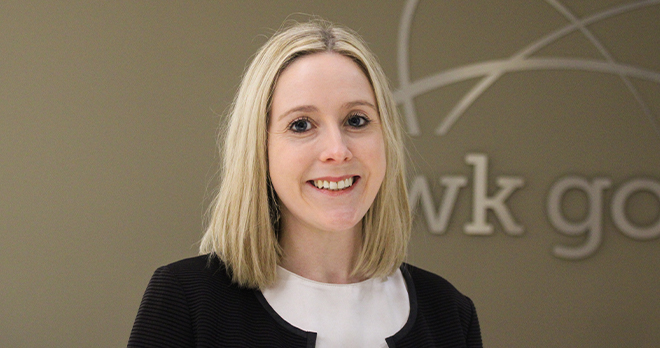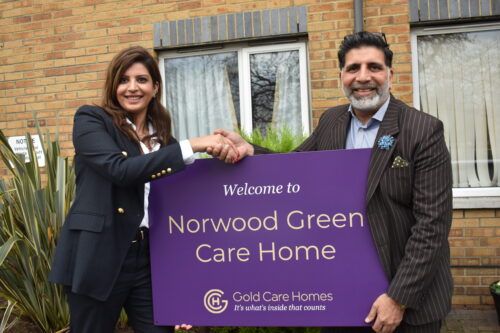Are you entitled to compensation for an accident while skiing or snowboarding?
If sufficient care was not taken and you have been injured as a result, you may have the right to claim compensation.
Circumstances which may indicate an inappropriate standard of care include:
- another skier or snowboarder has crashed into you from uphill;
- an instructor or mountain guide has not properly assessed the risk of avalanche and taken you to an area on the mountain which is unsafe;
- your ski instructor took you on a slope which is too challenging for your level of expertise;
- a defective ski lift or cable car has caused you an injury.
The accident might be the fault of another skier or snowboarder, a tour operator, a ski instructor or guide, or ski facilities operator. They should all have insurance to cover an accident claim.
What sort of injuries can I claim compensation for?
The most common type of injuries suffered in a ski accident are orthopaedic injuries, such as leg, shoulder or pelvic fractures, due to the intensity of the impact in a collision or fall when the person/s involved were travelling at speed.
Orthopaedic injuries are not only very painful and will prevent you from enjoying the rest of your holiday, but they can also have long-term impact on your ability to work and leave you with permanent disability.
Head injuries are also a frequent occurrence, especially when the victim was not wearing a crash helmet. Nowadays the majority of skiers and snowboarders wear helmets (although some still don’t…), and their use is compulsory in some countries and/or resorts. Head injuries can vary in severity from concussion to the most severe brain injury causing permanent disability.
Sadly, every year we hear of adrenaline-seekers who are caught in avalanches and suffer fatal injuries. Family members are entitled to compensation for the loss of their loved-one, though the conditions vary greatly depending on the country where the accident happened.
Spinal injuries may also occur in off-piste skiing and extreme sports, causing long-term disability, care needs and impact on working ability.
How can I bring a claim?
Whether your ski accident occurred in France, Austria, Canada or elsewhere, at RWK Goodman we can assess the prospects of your claim and whether it can be brought in England & Wales or in the country where the accident happened, and we can assist you either way.
The time limit to bring a claim varies depending on the applicable law, which – in most but not all cases – is the law of the country where the accident happened. Time limits vary greatly: for instance, in Spanish law it is one year from the date of the accident, in French law you have 10 years from the consolidation of the injuries; in between there are legal systems with limitation periods of two, three or five years. It not always a straightforward question, so it is essential to seek early legal advice to avoid the claim being time-barred.
How much compensation might I receive after a ski accident?
The amount a winter sport accident claim settles for will be dependent on the severity of the injuries suffered and your specific circumstances. However as you will see below we have settled cases for anything from £40,000 for an orthopaedic injury up to over £2m for spinal injuries.
Our track record of success
Our solicitors specialising in accidents abroad have dealt with many claims related to winter sports accidents, including:
- securing a £220,000 compensation for a French woman who suffered a broken pelvis and a fractured shoulder after a collision caused by an English skier;
- acting for a British ski instructor who got an injury to the elbow when a child he was teaching collided into him;
- obtaining £40,000 in compensation for an English skier who suffered a complicated leg fracture whilst on ski holiday in France when he slipped on an icy footpath in the resort;
- negotiating liability and over a £2m settlement in a claim for spinal injuries brought against a mountain guide after the victim was caught in an avalanche;
- successfully pursuing a claim against a British insurer for a ski collision in Andorra;
- advising on liability in an airbag jump accident.
If you have been injured in a winter sport accident and would like to make a claim for compensation, please get in touch with one of our team of specialist international injury lawyers.
Call now
From 9 September 2024, it will become a requirement that all deaths in any health setting (including care homes) that are not referred to the Coroner in the first instance will be subject to medical examiner scrutiny.
Medical examiners are senior medical doctors that provide independent scrutiny of deaths in England and Wales. Since 2019, NHS trusts have appointed medical examiners to scrutinise most deaths in acute healthcare settings and some community settings on a non-statutory basis.
The move to a statutory system in September 2024 is to help strengthen safeguards and prevent criminal activity. Public protection and support for bereaved families are at the heart of the overhaul into how deaths are certified with cases such as those involving Harold Shipman and Lucy Letby highlighting the need for additional scrutiny.
Bereaved families will have the opportunity to raise questions or concerns with a medical examiner who was not involved in the care of the person who died which helps to ensure transparency.
The impact on health and social care providers
Medical examiners will have a right of access to records of the deceased and so care providers will be required to share records with medical examiners in a timely manner. Providers might want to consider providing staff with training so that they feel confident liaising with the medical examiner’s office.
It is also a good idea for providers to start considering how to establish processes to receive feedback from the medical examiner’s office in order to help them learn from deaths. From a CQC perspective, this will also help to demonstrate good governance.
Culture within an organisation is also important as that can influence factors in terms of learning lessons from deaths. Having an open and transparent culture where staff feel supported to raise issues and report concerns is key.
There will be further communication regarding the legislative changes from the Department of Health and Social Care between now and September 2024.
RWK Goodman is a full service law firm which supports health and social care providers in relation to a wide range of issues, including inquests.
For further information, call:
Read more articles from our Health & Social care team:
View more articles related to Health and Social Care
Meet the RWK Goodman team behind the transaction
Our services in this area
Contact our mesothelioma and asbestos claims specialists today.
Call now
SWASAG events
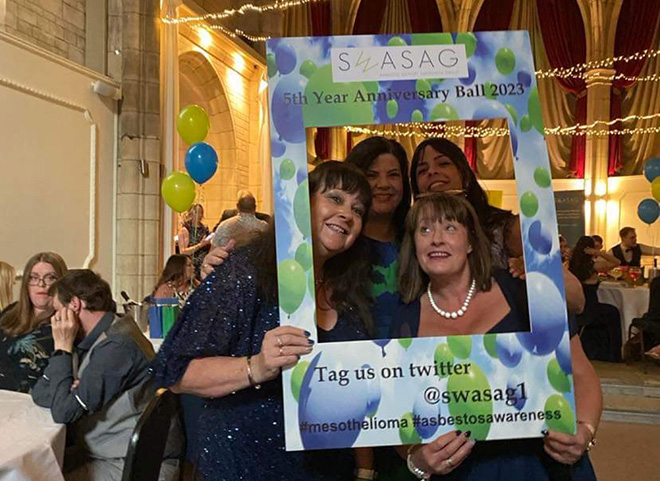
The South West Asbestos Support and Awareness Group (“SWASAG”) provides help and support to asbestos disease sufferers and their families in the region and we are honoured to have been on their legal panel since 2021.
Not only do we attend the group’s monthly support meetings in Truro and Plymouth, providing expert legal advice on potential asbestos disease claims to its members, but also its special events. The highlights that stand out for us this year are the Five Year Anniversary Ball in May, which celebrated five years of SWASAG’s charitable status, and the Johnny Cowling Comedy Night in January, both held at The Alverton Hotel, Truro. The latter is an annual event held in memory of Mike Moncini, father of Julie and Helen who founded the charity and who sadly lost his life to mesothelioma in 2018. This year, the event raised an incredible £4,300 for the charity.
These events are always so much fun, full of music, dancing and laughter and we look forward to supporting more in the future.
MAVSG events
Michael Wolstencroft and David Hughes from RWK Goodman’s asbestos team had the pleasure of attending the 30th birthday party of the Merseyside Asbestos Victims Support Group (MAVSG) in Liverpool in October 2023.
MAVSG is a Merseyside institution and, over the past 30 years, the team have assisted thousands of victims of asbestos-related disease and their families. They have campaigned tirelessly to raise awareness of the dangers posed by asbestos exposure and the risks it still poses to men and women in the Merseyside area and further afield.
It was an honour to attend the 30th birthday party and here’s to continuing the good work for many more years ahead!
HASAG events
HASAG – London Bridges Challenge
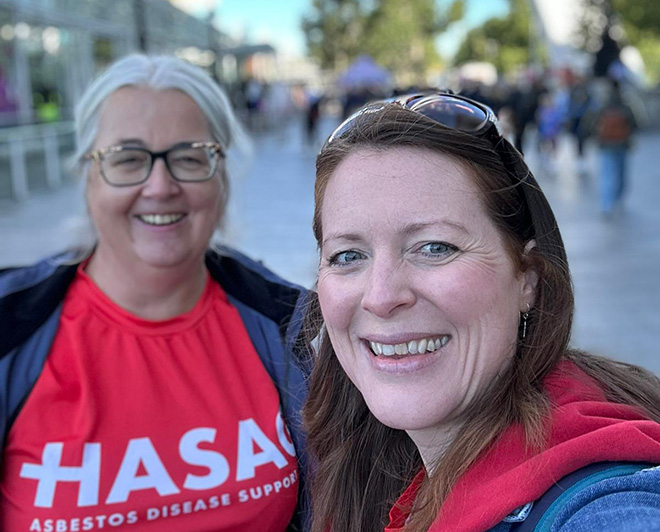
On Sunday 15 October 2023, Helen Childs and Annabelle Neilson joined HASAG and friends to trek across eight bridges in London, armed with a quiz to complete on the way. It was a beautiful sunny, cold day and we were soon enjoying the London landmarks. HASAG far exceeded their target and raised £1,335 to help support the wonderful work they do for mesothelioma patients.
HASAG – RHS Hyde Hall
On Tuesday 5 December 2023, Annabelle Neilson was delighted to join HASAG and patients at RHS Hyde Hall in Chelmsford, Essex, for some wellbeing and lifting of spirits ahead of the Christmas period. We were fortunate to have a guided tour of the gardens and then a delicious afternoon tea in the Gardener’s Rest restaurant. The dry garden at Hyde Hall was particularly interesting, as they never water it. Annabelle enjoyed it so much, she even returned for the Glow event later in December.
HASAG – Light up a Life Carol Service

Annabelle Neilson and Rachel Hicks from RWK Goodman thoroughly enjoyed attending the HASAG ‘Light up a Life Carol Service’ at Guy’s Chapel, London, in December 2023.
It was a very moving service with carols sung by a school choir and poignant readings. It was a lovely time to reflect and remember all of our incredible clients and their families who have been affected by asbestos related diseases.
There was an opportunity to write messages to loved ones in baubles to hang on the beautiful Christmas tree in the Chapel.
Thank you HASAG for organising such a special and memorable service.
HASAG Clinician Study Day
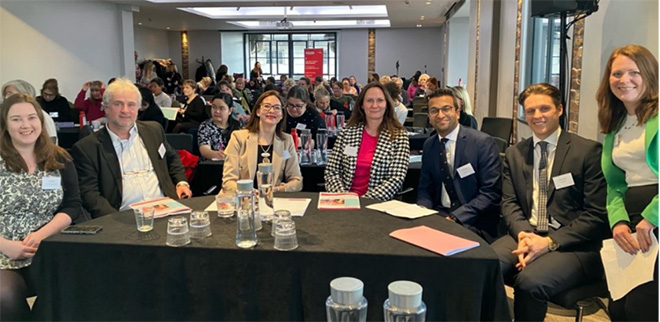
Annabelle Neilson and Rachel Hicks had a brilliant day at HASAG’s Clinician Study Day in London on 25 January 2024.
Lynne Squibb from HASAG opened the day with an excellent talk detailing her family’s personal journey with mesothelioma which led to the creation of HASAG. We also heard from Rachel Thomas from HASAG who explained her new nursing role at HASAG and the invaluable work she is able to do to support mesothelioma patients and their families.
Throughout the day we heard from a number of interesting speakers on both medical and legal topics.
David Waller, leading Thoracic Surgeon, presented on the results of the Mars 2 Trial and the role of surgery in mesothelioma. Sam Westbrook, a Peritoneal Mesothelioma Nurse, gave an insight into her role at Basingstoke Hospital and spoke about the fantastic support Zoom meetings she runs. RS Oncology gave a talk regarding the MITOPE trial. Dr Riyaz Shah, Consultant Thoracic Medical Oncologist, spoke on what’s new in mesothelioma and provided an update on non small cell lung cancer. Simon Bolton, a Clinical Nurse Specialist at Mesothelioma UK, gave an excellent talk on ‘scanxiety’ and discussed the findings from the Mesothelioma UK study which were very interesting in demonstrating different views and coping mechanisms on ‘scanxiety’.
We then heard a number of talks from industrial disease solicitors. Annabelle Neilson from RWK Goodman gave an insightful talk into immunotherapy and non NHS funded treatment. Annabelle provided case examples and discussed how RWK Goodman ensure provision for future non NHS funded medical treatment as part of the settlements we secure for our clients.
The day was hugely enjoyable. It was lovely to meet such a wide variety of professionals, to include nurses, doctors, charity representatives and lawyers. Thank you HASAG for organising such an educational and fascinating study day.
Proud winners of Mesothelioma UK’s Christmas carol-off

As a team, we are always proud to support Mesothelioma UK’s efforts to raise funds and awareness. There is always one of their events, however, that makes us laugh and cower in equal measure, and that is the Christmas Carol-off.
This year our team entered the “Best Entertainment and Presence” category with all of us singing at least one line each from “The 12 Days of Christmas”. We won’t forget Nadia’s classic line, “….and a penguin in a pear tree,” Lauren’s wacky reindeer dancing and David’s hen wrestling for quite some time!
Our efforts paid off this year when we were recognised as the winner of our category (joint winners, but winners nonetheless!). It has certainly given us some motivation to come up with something just as fun for this year’s entry – watch this space!
Portsmouth Lung Support Group Quiz
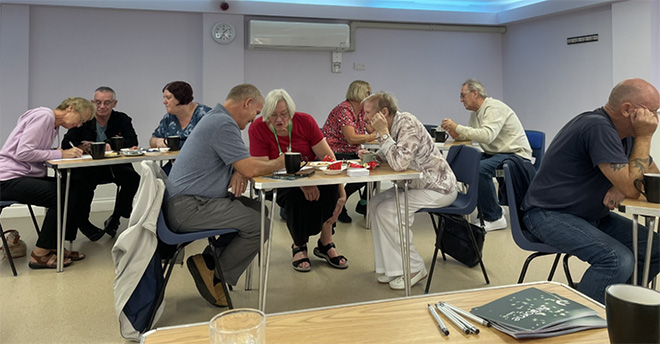
Associates David Hughes and Rachel Hicks hosted the annual Roy Castle Lung Cancer Foundation Support Group Quiz on 6 October 2023 in Portsmouth. A rare sunny day in October and well-attended. We look forward to hosting it again this year.
Contact our mesothelioma and asbestos claims specialists today.
Call now
Business Today: Industrial Disease Lawyers
Business Today showcases the most influential claimant advocates in the field of industrial disease, highlighting lawyers who have exhibited remarkable expertise, tireless advocacy, and an unwavering commitment to their clients. Helen Childs was recently recognised as the top industrial disease lawyer for her “exceptional track record,” “tenacity” and as “a true trailblazer” in the legal community.
Helen commented:
“I am truly honoured to be recognised as the top industrial disease lawyer by Business Today. Alongside our team of dedicated specialist lawyers, I feel truly privileged to help those injured by asbestos, including enabling them to access bespoke medical treatment.”
Chambers and Partners 2024
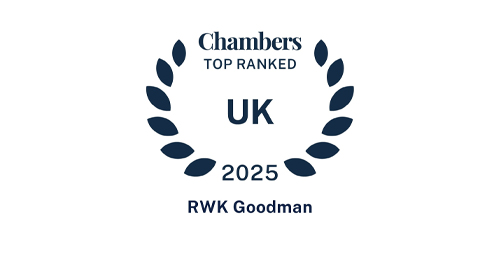
In the latest edition of Chambers and Partners 2024, our Industrial Disease team achieved new and improved rankings:
- New UK-wide ranking
- A new ranking for Jennifer Seavor, Partner
- New Associate-to-Watch ranking for David Hughes, Associate
Chambers also provided the team with the following reviews:
“RWK Goodman houses a prominent industrial disease department. The team has extensive experience in a variety of asbestos cases and often acts on behalf of victims of asbestos-related disease, their families and dependants. It is best known for handling mesothelioma cases and regularly represents claimants from industrial backgrounds.
They offer an excellent service to clients. They are very efficient and knowledgeable too.”
David Hughes was highlighted for his “judgement” and willingness to “put in the hours to get the best results for the clients.” He is noted to genuinely care and give an outstanding service to them.
Jennifer Seavor was recognised as “a brave solicitor who will take on some challenging cases. She works phenomenally hard to get justice.” Feedback included: “She works hard making sure all the i’s are dotted. She has a huge wealth of knowledge and experience in asbestos and really good instincts. She’s a real pleasure to work with.”
Contact our mesothelioma and asbestos claims specialists today.
Call now
Contact our mesothelioma and asbestos claims specialists today.
Call now
Contact our mesothelioma and asbestos claims specialists today.
Call now
Claims involving Johnson & Johnson
Over the years, a number of product liability claims have been brought against Johnson & Johnson who were the leading worldwide producer of talc. This led to a surge in claims against the company. These claims were vigorously defended despite clear evidence that asbestos fibres were present in their talc-based baby powder. In 2018, Reuters published an article exposing much of Johnson & Johnson’s previously confidential internal documents, including reports that revealed the presence of asbestos in their Johnson & Johnson Baby Powder.
In order to avoid their liabilities and further legal claims, Johnson & Johnson created a company called LTL Management LLC, split their liabilities for talc from the assets of Johnson & Johnson and immediately filed for bankruptcy in light of the rising number of talc claims. Frustratingly, this means that no legal claims can currently be made against Johnson & Johnson in respect of asbestos contamination of their products.
When is it possible to bring a US-based talc claim?
Anyone who contracts mesothelioma needs to be aware that cosmetic products they used may have contained asbestos-contaminated talc. It is sometimes possible for UK victims of mesothelioma, many of whom will be women, to seek compensation from these cosmetic companies in the US.
When assessing whether it is possible to bring a US-based talc claim, we ask our clients several questions, including whether they or their families have previously used powder or make-up products containing talc, including perfumed body powders, face powders or baby powders. We also ask whether they have been to America and whether they have purchased any make-up or talc products there. It is still possible to bring a claim for clients who have never been to America, or purchased powders/make up products from there, but to do so includes detailed analysis, such as whether the talc product was manufactured in New York or whether cosmetic research development centres were present there.
Typically, considering whether or not a talc claim will be possible depends on the client’s use of the talc products, when they used them, and for how long they used them. American talc claims require a deposition from the client by way of oral evidence rather than a written statement, which is different to the UK legal claim process where a client’s written witness statement often forms their evidence. If the mesothelioma sufferer is no longer alive, evidence can sometimes be provided from family members/witnesses about their use of the talc-based products.
Our cases
We have worked closely with a leading US trial attorney on a number of cases involving US product liability lawsuits. These lawsuits on behalf of UK-based victims of mesothelioma can be extremely valuable, in some circumstances in excess of $1,000,000.
In one of our claims, evidence was provided by the family of a lady who sadly passed away from mesothelioma. This lady was exposed to asbestos-contaminated talc through her use of Avon, Elizabeth Arden and Clinique powders from the 1970s to the 1990s. Photographs of the cosmetic products used have been helpful in supporting the claim. The claim is currently ongoing.
Many mesothelioma claims arise from exposure to asbestos in the workplace. Typically, exposure to asbestos has caused mesothelioma for a variety of tradesmen who have worked with asbestos products in industrial settings. Asbestos talc claims are very different. It is alarming to think that the talc-based powders and cosmetic products we have all used over the years have been found, in some instances, to be heavily contaminated with asbestos which can lead to the development of mesothelioma. It is very important that the possibility of exposure to talc-based powders and cosmetics is fully considered when considering legal redress for mesothelioma.
Contact our mesothelioma and asbestos claims specialists today.
Call now
Is there a right to a second opinion and how easy is it to change solicitor?
Everyone has the right to a second opinion, not least because different law firms may take different views on a case. Some may be willing to take on cases that do not meet other firms’ selection criteria. No solicitor is compelled to take on an individual case, therefore it is always worth having your case reviewed by other firms to see if their opinion differs.
Mr J had been advised by a national law firm in his lifetime and had had his case turned down because that firm felt the prospects of success were insufficient. Mrs J approached us at RWK Goodman for a second opinion, and upon reviewing the case, there was further evidence that could be gathered from other witnesses and other possible angles that could be investigated. Mrs J brought a case on behalf of the Estate of Mr J and it was concluded successfully, despite Mr J being advised by another firm that they could not continue to act due to the case having insufficient prospects of success.
What about the costs?
In the case of Mrs J, her case had been turned down by a previous firm, so she was able to enter into a new Conditional Fee Agreement with us without having to pay any of her previous solicitor’s costs.
Mrs B, Executrix of the Estate of Mr B, also found her claim being turned down by a national law firm, but her claim succeeded when she instructed us. The evidence was approached from a different angle and the case brought on the basis of the Occupiers Liability Act instead of an Employer’s Liability claim. Mrs B did not have to pay any additional costs and was able to enter into a new Conditional Fee Agreement with us.
The same thing occurred in the case of Lloyd v Humphreys & Glasgow [2015], which succeeded at trial after Mrs Lloyd instructed us after two previous firms had been unable to pursue her case. Our detailed understanding of out-of-time cases and the impact on Mr Lloyd’s claim of the asbestos trigger litigation meant that, when we assessed the merits of the claim, we thought it had good prospects.
What if I want to change solicitors because I am unhappy with my solicitor?
If a claimant is unhappy with their solicitor, can they change firms? Whilst a solicitor can charge their client for terminating the CFA, solicitors have to abide by the terms and conditions of the CFA agreements in the same way that their clients do. If they have not provided timely advice or advice on the pros and cons of legal action, then they may be in breach of the agreement. In practice, solicitors will normally make an arrangement with each other to preserve and recover the costs of the claim on behalf of the original solicitor, meaning that changing solicitors is a viable and usually straight forward process.
If the claimant is unhappy with the progress of their claim, there can be benefits in approaching another lawyer. Asbestos claims are technically difficult. The Mesothelioma List in London’s Royal Courts of Justice has a special fast track procedure outside of the normal procedure for injury claims. A specialist solicitor will know how to navigate these promptly and efficiently, to progress cases urgently.
In the case of Mr H, he instructed a small regional law firm that did not specialise in asbestos claims. He had a very strong claim and was in desperate need of an interim payment to fund private immunotherapy treatment, as at that point his treatment was not available on the NHS. Mr H’s solicitor was not progressing his case rapidly, despite the strong prospects and Mr H had to pay for his treatment himself. He was only able to manage this for a short period of time. He sought a second opinion from RWK Goodman and we were able to immediately issue Court proceedings and seek an urgent interim payment, which allowed Mr H to continue with his private medical treatment and recover the cost of what he had already paid.
While there are definite benefits to seeking a second opinion or changing solicitors to a specialist if you feel your claim is not being progressed fast enough, one also needs to bear in mind the practicalities. Files of papers take time to access, and solicitors need time to review and familiarise themselves with the papers. It is essential that practicalities such as limitation dates are kept in mind. As much as a new solicitor may want to help, unless sufficient time is allowed, it may be impossible to achieve. So if you are considering seeking a second opinion, the sooner the better!
Contact our mesothelioma and asbestos claims specialists today.
Call now
Contact our mesothelioma and asbestos claims specialists today.
Call now
We need to talk about death
A book I have been reading recently has introduced me to the concept of an end-of-life, or death, doula. End-of-life doulas provide support for those people who have a terminal illness, whether that is practical, emotional, or spiritual support. This is not something I had ever considered before, but this is probably no surprise, as death is not something that we ever really talk about beyond the practical side of what happens after we die.
As lawyers we are aware of the importance of getting your affairs in order; making sure you have a Will and that financial arrangements are in place to support your loved ones after you die. As a parent, I want to ensure that if I die my children will have appropriate guardians in place and the financial means to support them through to adulthood.
But what about how I die? This is not something that I, or many others, think about, let alone discuss. But many palliative care experts consider that talking about dying and death can help to ensure that everyone gets the support they need, that suits them. There is no one-size-fits-all in death.
For some of us, we will have no warnings about our impending death, although that should not prevent us from being open and frank in talking about it. Dying Matters Awareness Week is 6 to 12 May 2024. It is a movement to encourage us to talk about death, dying and grief.
But what about those who are diagnosed with a terminal condition, such as mesothelioma, who have a prognosis regarding their death. Hospice UK consider that “Honest, timely conversations about death and dying are essential to good end of life care”. So, how can they use this knowledge to plan their death? Can they choose when they die?
Euthanasia: the law
Euthanasia is the “act of deliberately ending a person’s life to relieve suffering”. It is distinguished from assisted suicide, which is assisting another person to kill themselves.
Both euthanasia and assisted suicide are illegal in England, with maximum penalties of 14 years imprisonment for assisted suicide, and life for euthanasia. Assisted suicide prosecutions can also extend to cover those who travel with loved ones abroad to places such as Dignitas in Switzerland.
Despite this, one campaigning group, Dignity in Dying, say that 300 dying people end their own lives in this country every year. Another 350 Britons have also travelled to Dignitas to end their life there. So, is there a need for legislation in England to change? Should we be allowed to choose how and when we die?
Dignity in Dying
Dignity in Dying is an organisation who are campaigning for what they say is a choice, access, and control over how, where, and when we die. But assisted dying is not something which they say should be available to everyone. They are focused only on those with a terminal illness, with six months or less to live.
Dignity in Dying propose a similar law to that in Oregon and other US states, which requires the dying person to end their own life (not another person doing it for them), assessment by doctors and a High Court judge, and which allows the dying person to die at home.
Their position is that it should be dying people who are in control of their deaths, not doctors. They focus on freedom of choice and having a safe, comfortable, and dignified death.
Care not Killing
Conversely, Care not Killing is an organisation opposing euthanasia and instead promoting care. They want to work to promote better and more available palliative care and prevent any relaxing in the law surrounding assisted dying.
They want to ensure that those who are terminally ill do not feel like a burden to loved ones or the healthcare system and believe that, with appropriate palliative care, everyone can have a dignified and peaceful death.
Care not Killing highlight that if a law like that in Oregon was to be introduced in England, we would be looking at around 2,600 deaths per year. Alternatively, using the Netherlands model we would be looking at 13,000 deaths. It is clear therefore that any such legislation could have a significant impact.
Assisted Dying Bill
The call for assisted dying has been given additional weight recently after broadcaster, Esther Rantzen, revealed that she had signed up to Dignitas after her lung cancer progressed to stage 4. A petition was then signed by over 100,000 people calling for the Government to allocate Parliamentary time to debate assisted dying.
On 22 February 2024 the Ministry of Justice responded:
“The Government has the utmost sympathy for anyone experiencing the pain of watching a loved one deal with a life-threatening or degenerative condition.
Whether there are any circumstances in which it should not be an offence to assist another person to die is something on which there are passionately held but deeply divided views. Even amongst those who support a change in the law, there are differing ideas on where the line should be drawn, what safeguards should be in place and for whom. Conversely, others feel strongly that the law should not be changed and that safeguards will not necessarily give enough protection to vulnerable people who may feel pressure, whether real or perceived, to end their own lives.
It remains the Government’s view that any change to the law in this sensitive area is a matter for Parliament to decide and an issue of conscience for individual parliamentarians rather than one for government policy. Parliament has debated this issue on several occasions, most recently in July 2022, but has so far voted against proposals to legalise assisted dying.”
Dignitas
In the meantime, whilst the law in England remains static, many are continuing to choose to travel abroad to end their own life. One such example is Bob Cole who was diagnosed with mesothelioma.
Bob was a campaigner for Dignity in Dying after his wife, Ann, died at Dignitas in Switzerland following a diagnosis of progressive supranuclear palsy, a rare and fatal neurological disease. Bob said in an interview before his death, that Ann’s death was peaceful, quiet, and dignified. After his diagnosis, Bob began to suffer with increasing pain from his mesothelioma and wanted to be able to choose the same death for himself.
Bob also chose to die at Dignitas in Switzerland, a choice not necessarily available to everyone due to the significant cost involved, and the fact that you must be fit enough to travel there. Another consideration is that potentially you must travel on your own, as any loved ones who travel with you risk being prosecuted for the offence of assisted suicide on their return to England.
Planning to die
It certainly cannot be denied that the category of people who will be most impacted by any assisted dying legislation are some of the most vulnerable members of our society, and therefore there is strong opinion on both sides.
But do we need assisted dying to have a dignified death?
I think we can all agree that, wherever possible, we would like to die in comfort, with dignity, and to be psychologically, practically, and spiritually prepared for death.
In the UK we have seen growth of end of life and palliative care services over the past 50 years. There has been more emphasis on suitable end-of-life care and achieving the best possible quality of life for patients. This is reflected in where people are choosing to die, with a greater number of people now dying at home rather than in hospital.
Hospices are invaluable in providing guidance and support in many aspects of end-of-life care including pain relief, symptom control, respite, practical and emotional care. They take a holistic approach to end-of-life care and are generally more comforting and homely environments than hospitals. But hospices are not available to all dying people as they are massively underfunded. Hospice UK reported in September 2023 that adult hospices have “faced a real-terms cut in their government funding of £47m in the past two years”. They are invaluable to our health care system and end-of-life care and yet remain largely charitably funded.
As individuals, we can have more say than ever before in what our death looks like. Hospice UK’s website even offers a planning ahead tool, highlighting different aspects that you may wish to consider when you plan how you will die.
Yet, in the UK, we have not yet gone as far as other countries in allowing those with life-limiting conditions to choose how and when to die. The debate surrounding this issue remains hotly contested and it remains to be seen if this issue will once again come before MPs for further debate.
What is clear is that discussion around death and dying needs to become a less taboo topic, and one we can all feel confident to discuss, and that further investment into palliative end-of-life care is needed.
Contact our mesothelioma and asbestos claims specialists today.
Call now

